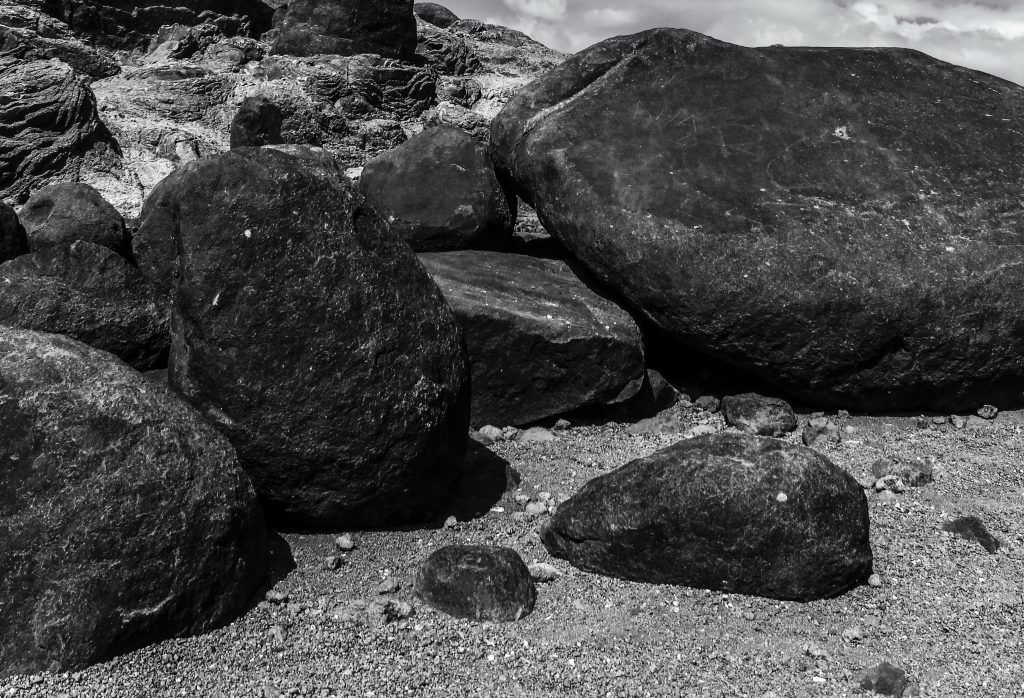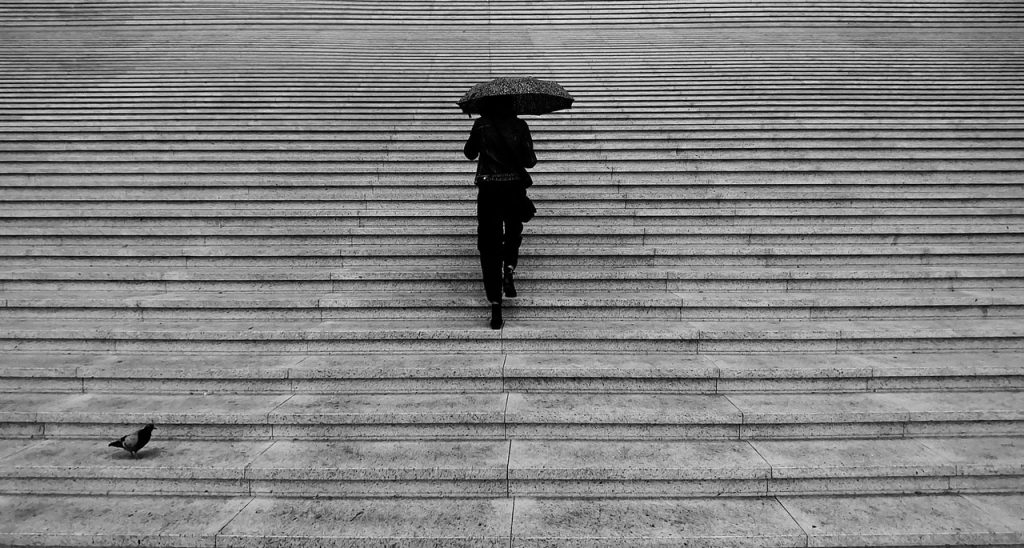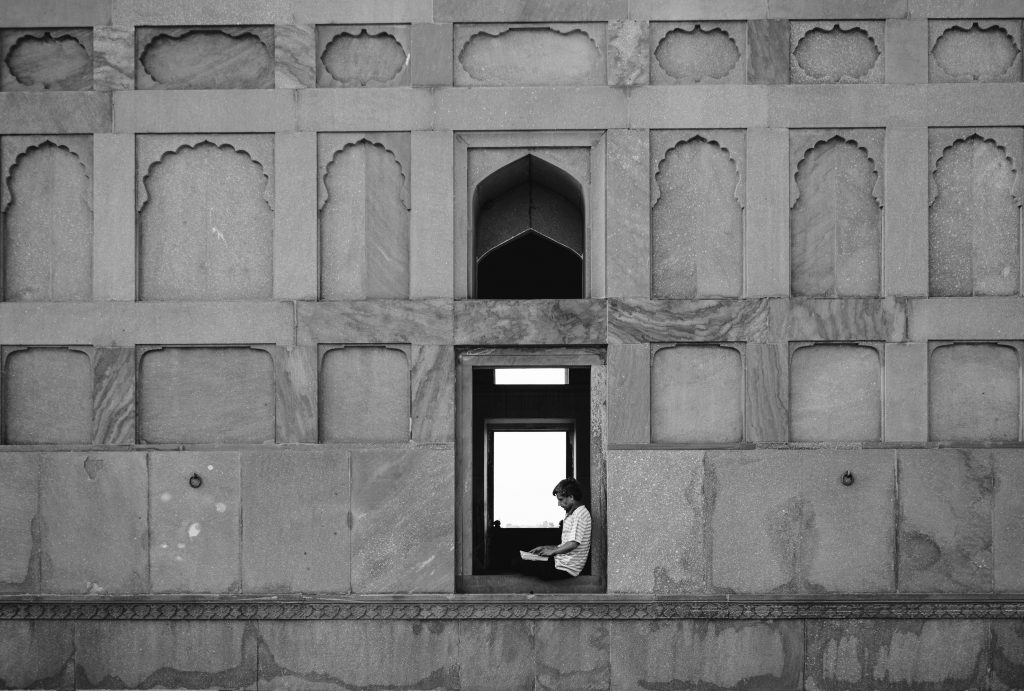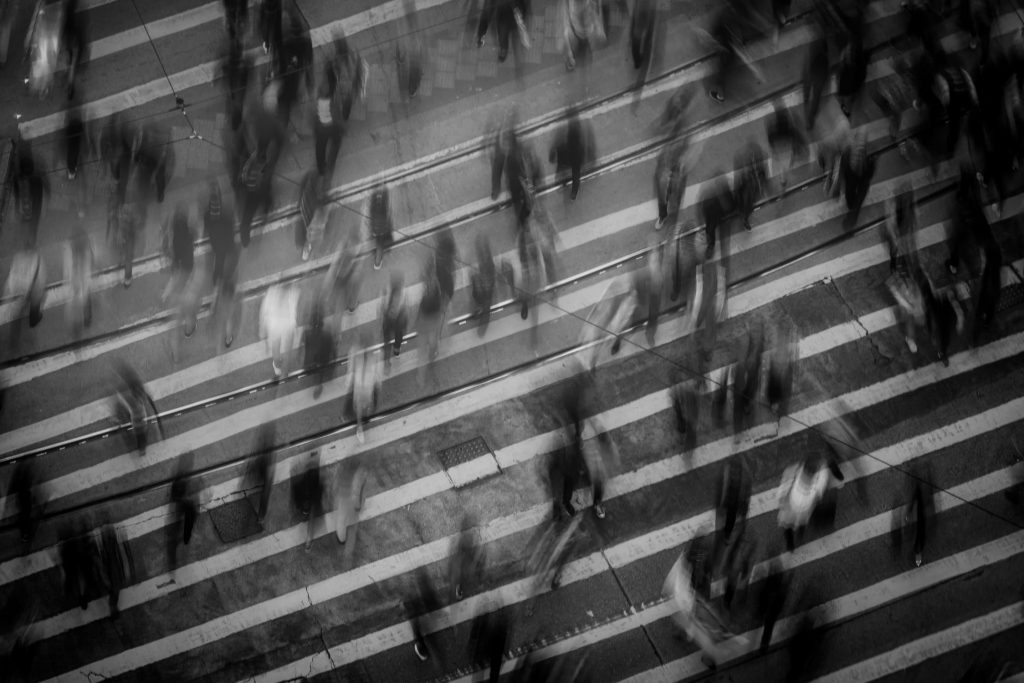The ego is very serious
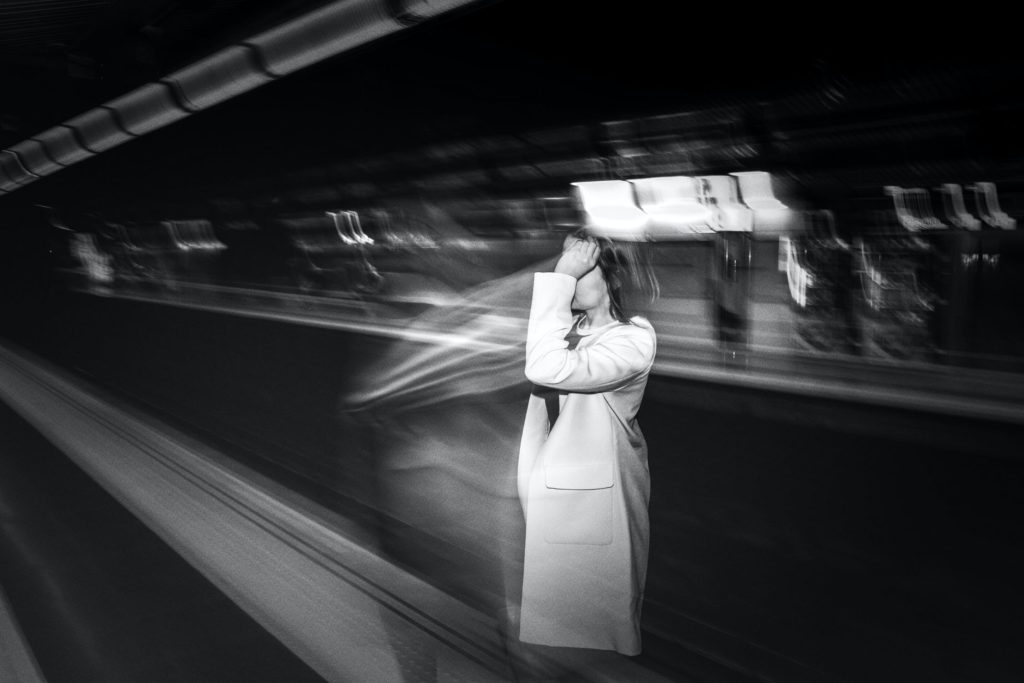
On the face of it, my wife’s and my daily yoga practice doesn’t look especially grim. In fact, it looks like the opposite. We laugh a ton. We make lots of jokes. Like the one about how, if our uber-hip, 20-something selves could have peered into the future and seen us now, in our 50s, listening to this ruinously uncool music, we would have hurled ourselves off the top of the IDS building (or some gloomy gothic church, while Joy Division blasted from a 1980’s boom box) to stop it from ever happening. So our yoga routine doesn’t seem to be particularly serious.
And yet in truth it is. Because what really makes these moments of humor such bright spots in the day? It’s how they stand out from the backdrop of subtle seriousness that’s otherwise there. The same could be said for the laughter we get from comedies on Netflix or Hulu. It, the laughter, is so notable because of how it contrasts with the ambient serious feeling-tone of the rest of the day. Here are a few examples of the things I took seriously today.
First there was making our daily smoothies. Making smoothies involves all sorts of sober, triage-like decisions about which pricey superfoods to toss into the blender because I simply don’t have time to add them all. By the way, this sense of time-scarcity is itself, a fretful and serious thing, as are the guilty thoughts of being so privileged I can afford dorky superfoods. Making green smoothies is an orgy of quiet graveness.
Later in the afternoon I felt the addictive craving to indulge in five or 10 minutes of mindless Internet distraction – on a boneheaded MMA website, if you must know – and, as I did so, my whole vibe was positively grim. (Adi Da once pointed out that people indulging in addictions are always extremely serious and, sure enough, the two times I’ve been in strip clubs and the one time I was in a casino, that was the most striking thing – the look of morose, deadly, funereal seriousness on everybody’s faces.)
When Adi Da uses the term “serious” in a critical way, he means that the separative ego is virtually always serious – troubled and fretful on some level, even if very subtle. He has described this egoic vibe as, “the mood of concern” or “the feeling of dilemma in the heart.”
Conversely, quite often, when he talks about humor, he doesn’t mean ordinary humor. He means a primal gnosis of the radical “non-necessity” of all arising experience; a lack of identification with self or phenomena; a free, wide-open, mindless, Transcendent orientation.
For me, then, this amounts to a handy barometer: A sense of fettered, thought-infested seriousness – even if very subtle – means I’m not practicing (spiritually). Or at least not much, or not effectively. Conversely, a feeling of loose, easy spaciousness means that, at least to some degree, I am. Maybe.
Here is a bit of Adi Da’s teaching on the matter.
“While you are alive, everything seems important…Enlightenment is to Awaken from the seriousness of experience…Despair, self-indulgence, stressful effort, discipline, real interest, knowledge, death, sex, food, everything is completely serious. This movement or tendency to survive, to continue in independent form, is profoundly serious, and it is also absurd because it must be understood and transcended. Enlightenment is to be restored to Divine humor…
“We are under the incredibly absurd illusion that there is an objective world “outside” Consciousness and there is a ‘me’ inside this body. There is not a shred of truth in these presumptions. What ‘you’ presume in your everyday consciousness in any moment is the drama of the seriousness of your independent existence. When you awaken, even for a moment to its true Position, which is senior to any phenomena, then the full humor and freedom of necessity to any experience is brought forth. There is only Enlightenment, Divine Freedom. No matter what arises.
“… you are so distracted by [your experience] that you have lost your humor. You have lost your true position. You do not have a right relationship to experience.
“The wrong relationship to experiential phenomena is to presume that you are a separate person, a separate consciousness, in the midst of a world that you know nothing about, that somehow encloses you, that is objective to you, that is separate from you. In that case, you see, experience is a very serious business. You have no option but to submit to it, to be distracted and tormented by it.
“The motive that keeps this sense of ‘reality’ continuing is basic to your sense of existence. Surviving as experience is what you are chronically doing. You are being this body-mind. You are moved to continue as that, and to glamorize it, pleasurize it, protect it, fight for it and all the rest of the catastrophic mindset that goes with it…
“…Therefore, you hold on to your present experience. But if you could give up everything, not through negative, reactive effort, but through Transcendental Realization, then your humor would be restored, and a different sense of existence would quite spontaneously arise. Then you would realize that there is no necessity to this present experience, except that it is set in motion through ordinary causation and will therefore continue for its term…
“The ordinary reactive personality, who is basically in despair and hysterical, can also say that life is meaningless, but such a person is very serious. The Enlightened man, however, Realizes total Freedom. He is no longer serious, but neither is he self-destructive. He has passed into Ecstasy. He has not suppressed or separated from himself – rather, all that he is has been transcended in the Radiant Transcendental Consciousness.
“Thus, he is full of humor and delight. He is not aggressively opposed to the world, nor is he clinging to it. All the tension in his heart has been released. To speak of Enlightenment without that sign is nonsense. There is no Enlightenment without the release of the heart from all of its seriousness, all of its clinging to phenomena, high and low.”
Wouldn’t it be gloriously unserious, in fact downright silly, to subscribe to this blog?




